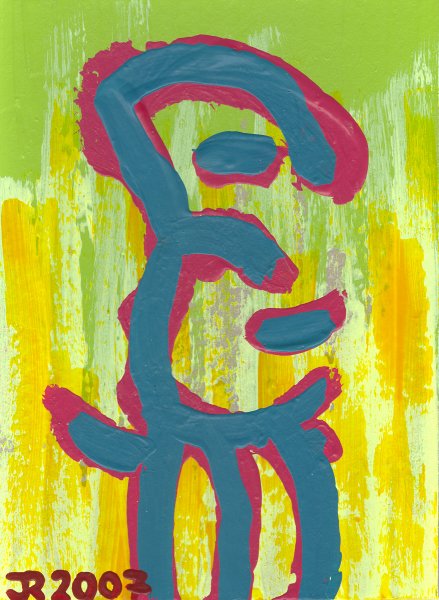I often refer to this "Fluxus syndrome." It is my term for a problem that I face. It goes like this. A gallerist, critic or exhibitor tells me "I like your work. I know you are a Fluxus artist." Then they see more of my work and they compare it to the work of George Maciunas, whom they take to be the leader of Fluxus instead of its namer and, in his own preferred term, "Chairman" of Fluxus. They note that there are differences and they say to me: "But that work is not Fluxus. Do you have any Fluxus work?" I say yes,-and I show work from the early sixties through late seventies. It still does not resemble the work of Maciunas.
It isn't usually even fun and games, which is what the public thinks of as Fluxus. So I am marginalized in Fluxus shows, or I am left out of other collections because "This is not a Fluxus gallery/museum show/collection." The problem is all but unavoidable, and in vain can one point out that if Fluxus is important, it is because of its focus on intermedia, that Maciunas recognized this repeatedly, that he knew perfectly well that there was room in Fluxus for work which did not resemble his at all. If one says anything like this in public, it is taken to be a disloyalty to George or some kind of in-fighting for prestige. I have sometimes been tempted to show my work under a false name in order to escape this syndrome altogether. But even that sounds as if I were ashamed of my Fluxus past, which I am not, even though it is not awfully relevant to my work since the late seventies.
Also I still feel affinities to some of my Fluxus colleagues, though the work of others has, in my opinion, become repetitious crap. Many of my Fluxfriends could do with a little more self-criticism, in my opinion. Fluxus also has its share of hangers-on, people who were utterly marginal to the group and who kept their distance during the years when Fluxus had not acquired its present and perhaps false public image, but who are now all too willing to con their way into the list and to enter their colors for the next tournament.
From an Interview with Dick Higgins (USA) by Ruud Janssen (Netherlands)
(source:
www.fluxusheidelberg.org/dhint.html)
Labels: Dick Higgins, Interview, Ruud Janssen















